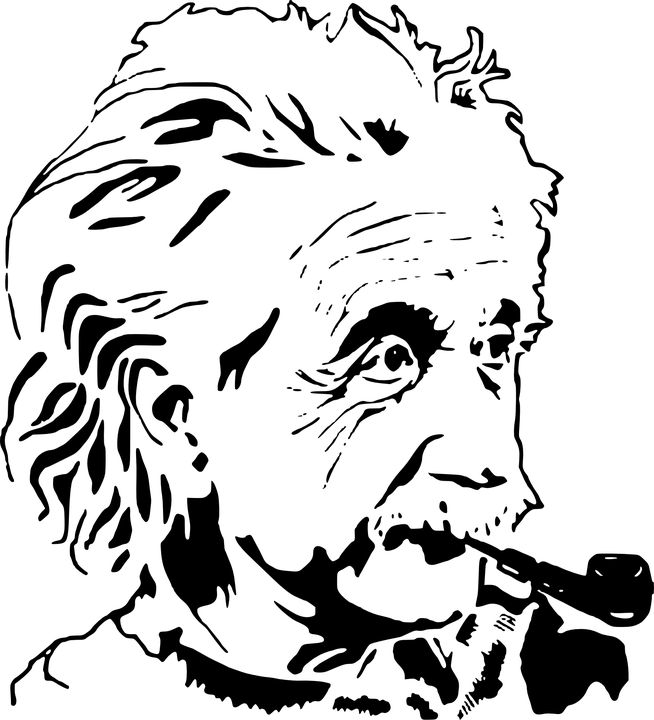Appeal to fellow scientists, teachers, authors and publishers of textbooks, scientific and popular science literature

The process of creating Ukrainian scientific terminology was long and challenging. The first scientific works on physics in the Ukrainian language were published in the late nineteenth century in the publications of the Shevchenko Scientific Society in Lviv, because in the Russian Empire any scientific and educational texts “in the Little Russian dialect” were banned in those days. During the Soviet era, this ban was lifted, and in the 1920s, the institutions and commissions of the All-Ukrainian Academy of Sciences initiated an unprecedented term-making work.
But since the 1930s, the authorities officially required to servilely follow Russian standards in the Ukrainian terminology system. Even the names of foreign scholars had to be written in Ukrainian not by their sounding in their native languages (Айнштайн, Гайзенберг, Вільсон, etc.), but by the way they were mechanically modelled in Russian (Ейнштейн, Гейзенберг, Уілсон).
In the days of independent Ukraine, there were wide discussions about the need to bring the national terminology system in line with world standards and the requirements of common sense. The result of the term-creating work of many scientists was the “English-Ukrainian-English Dictionary of Scientific Language (Physics and Related Sciences)”, which was published in 2010 under the auspices of the M.M. Bogolyubov Institute of Theoretical Physics of the National Academy of Sciences of Ukraine; it was recommended by the Department of Physics and Astronomy of the National Academy of Sciences of Ukraine as a standard dictionary.
We strongly encourage colleagues to follow the recommendations of this dictionary in their texts and daily work. Let’s give just one example in order to explain why this is important. To denote the English term “quantum dot”, the unfortunate Russian equivalent “квантовая точка” first appeared, which later passed into Ukrainian-language texts.
But “точка” means a mathematical abstraction without dimensions, while in this case it is a formation that contains thousands of atoms and has finite linear dimensions. So, it is no coincidence that the academic dictionary recommends the equivalents: “квантова цятка, наноцятка”, which give an undistorted view of the physical nature of the object.
However, until recently, the problem of correct spelling of the names of foreign scholars was at a dead-lock because of the lack of approved modern Ukrainian spelling. Finally, such a spelling was developed by the National Spelling Commission, which included leading Ukrainian linguists from the National Academy of Sciences of Ukraine and universities; it was unanimously approved at a joint meeting of the Presidium of the National Academy of Sciences of Ukraine and the Board of the Ministry of Education and Science of Ukraine on October 24, 2018 and by Resolution of the Cabinet of Ministers of Ukraine №437 of May 22, 2019. Attempts made by pro-Russian forces to abrogate this spelling through court action have failed, and all of us, as law-abiding educated citizens, must now adhere to its requirements.
Thus, paragraph 136 of the current spelling states: “According to the pronunciation, the German letter combination ei is transliterated with Ukrainian letters ай (яй): Айзена́х, Ва́йнрайх, Віттгеншта́йн, Ва́йзенборн, Ка́йзер, Ма́йнгоф, Нортга́йм, Бляйбтрой, Кляйн, Кляйнерт, Фляйшер. Traditionally, in longtime loanwords, the German letter combination ei is transliterated with ей: кре́йда, кре́йцер, маркше́йдер, капельме́йстер, гросме́йстер, штрейкбре́хер, Ге́йне, Ле́йпциг, Рейн, Швейца́рія”.
This means that we have to write Айнштайн, Гайзенберг, which corresponds to the original German sound of these surnames.
Paragraph 124 of the spelling requires: “English w to denote the sound [w] is usually transliterated with в: віке́нд, Вашингто́н, Ве́бстер, Веллінгто́н, Ві́льсон, Вінніпе́г, etc.; and in some words, traditionally, with у: Уе́льс, уайт-спірит, etc.” So, William Thomson (Lord Kelvin) and William Shockley are Вільями, not Уільями, and the inventor of the charged particle detector, Charles Wilson (and many other scientists with this name) are Вільсони, not Уїлсони.
Finally, we quote paragraph 122: “The sound [h] is mainly transliterated with the letter г: гандбо́л, герба́рій, гі́нді, гіпо́теза, горизо́нт, го́спіс, го́спіталь, гу́мус; Га́рвард, Ге́льсінкі, Гіндуста́н, Ганніба́л, Ге́йне, Гора́цій, Люфтга́нза. By tradition, in some words taken from European and some Eastern languages [h] and phonetically similar sounds are transliterated with the letter х: хо́бі, хоке́й, хол, хо́лдинг, брахма́н, джиха́д, моджахе́д, хану́м, харакі́рі, хіджа́б, шахі́д, Алла́х, Ахме́д, Муха́ммед,Сухро́б, Хакі́м, Хаммура́пі etc.”
This means that we have to write Роберт Гук (not Хук), Олівер Гевісайд (not Хевісайд), and, consequently, the “функція Гевісайда” (and the “індекс Гірша”).
Certainly, inertia is a challenging thing. We all have a genetic memory of centuries of being in the Russian Empire. But today, independent Ukraine and its science are open to the world, and there is no reason to continue to look at the world in a Russian mirror, a deformed mirror. Let’s write and speak correctly, and let’s teach our students to do so. After all, this is another manifestation not only of Ukrainian patriotism, but also of academic correctness.
Igor ANISIMOV, Professor, President of the Ukrainian Physical Society
Vadym LOKTIEV, Professor, Academician-Secretary of the Department of Physics and Astronomy of the National Academy of Sciences of Ukraine
Leonid POPERENKO, Professor, Academician-Secretary of the Department of Physics and Astronomy of the Academy of Sciences of the Higher School of Ukraine
Maksym STRIKHA, Professor, President of the Ukrainian Physical Society in 2013-2016, Co-Chair of the Ukrainian National Spelling Commission in 2015-2019
Svit newspaper, № 47 – 48, December 2021
